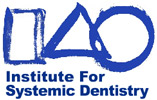Tooth decay, known medically as dental caries, happens to every person in every age group. Children, however, are a special focus for the prevention of tooth decay. Outside of very rare instances in medical history, children are the only people who can grow new teeth. When the deciduous teeth (commonly called “baby teeth”) are lost during childhood, permanent (“adult”) teeth begin to grow in their place. These are the teeth that the growing child will have for the rest of his or her life. It is during this time that the child will learn (or unlearn) the behaviors and environmental factors that contribute to tooth decay—which usually begins as soon as that first permanent tooth starts to erupt. Good nutritional choices and proper dental hygiene practices improve the odds that the child will retain those teeth long into adulthood.
The covering of teeth, called enamel, is the hardest substance in the human body, and enamel in general is one of the strongest mineral substances produced by living things. Once enamel has been compromised and decay begins, it is imperative for a dentist to contain and repair the damage as efficiently as possible; it’s equally important for the patient to mitigate the nutritional or environmental factors that contribute to tooth decay.
There are still conflicting views about the actual cause of tooth decay. Currently, the most widely accepted cause is the acid theory proposed by Dr. Willoughby Miller in 1890. Miller’s theory postulates that decay is a local phenomenon, occurring only from factors in mouth—specifically, when bacteria, sugar, and teeth come into contact. Under the acid theory, mouth bacteria consume sugar and excrete acid, which then begins the decay process. This theory has never been conclusively proven; Dr. Miller even admitted that it was too simplistic of an answer to a process as complex as tooth decay. Some studies have demonstrated that soft drinks, fruit, gastroesophageal reflux disease, and certain microorganisms can initiate decay of enamel; other studies assert that, though some of these factors may start the decay process, they cannot break down collagen or demineralize dentin to form cavities. (Dentin is the calcified tissue found under enamel and contains the connective-tissue protein collagen.)
A competing theory about the cause of tooth decay considers it to be a manifestation of systemic disease; in other words, the problem originates elsewhere in the body, with tooth decay merely being a result of a larger, underlying health issue that contributes to insufficient mineralization in dentin (hypomineralization). Proponents of this causal theory stress that:
- Under the acid theory, any exposure to sugar in the mouth would raise susceptibility to decay.
- Decay is a complicated process that exhibits both local and systemic factors; the latter appears to be more important.
- Studies have shown that dentin contains a fluid that nourishes teeth and inhibits decay. Sugar consumption causes this fluid to stop, resulting in great likelihood of decay. Other studies have revealed a hormonal basis of mineralization and decay resistance.
- Some studies indicate that certain systemic factors, such as blood calcium and phosphate levels, affect the susceptibility to decay.
If decay is systemic, then addressing the causal factors (e.g., nutritional, etc.) is as important as good oral hygiene. A systemic assessment by a qualified dentist can determine the balance of dietary and hygiene adjustments, combined with dental care, to ensure that your child’s teeth are best suited to avoid hypomineralization and increase resistance to decay.
Our next article examines the patterns and possible causes of childhood tooth decay.
The Center for Systemic Dentistry provides the highest level of care and follow-up to ensure that your child’s teeth remain healthy and sound well into adulthood. Located in Berkeley Heights, New Jersey, we are committed to being the state’s leading dental practice that focuses on holistic, healing-focused dentistry. Dr. Philip Memoli and his staff are ready to repair the damage caused by childhood tooth decay and ensure that our pediatric patients are committed to maintaining healthy teeth as they grow. Call us today at (908) 464-9144 or contact us via our online contact form.
Read more about pediatric dentistry and child dental wellness at http://www.holisticdentistrynj.com/our-services/pediatric-dentistry/.








